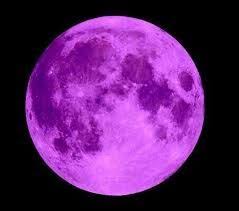Looking for some discussion about a very intriguing concept. Members of this community commonly refer to this concept as MOASS. It doesn’t often get discussed directly, but it looms large behind many discussions.
For posterity’s sake, I’d love to get some discussion about it directly. It’s November 24, 2023. As the future unfolds, I’d like to be able to look back on a discussion like this and see what the thoughts about this idea were at this time.
Here are a couple of questions that might be worthy of discussion.
-
What is MOASS?
-
What is the probability of this event occurring over what period of time?
-
Is it inevitable?
-
Is it controversial? If so, why?
-
Are many people aware of the idea?
-
Of people that are aware of it, there are those that believe that it is a real thing that will happen, and there are those that believe that it is not a real thing that will ever happen. Why do some people believe that it cannot happen?
-
Who benefits if MOASS materializes?
-
Who does not benefit / who suffers if MOASS materializes?
-
Is MOASS potentially an existential threat to some parties? If yes, which parties?
-
If MOASS is an existential threat to some parties, and if those parties had an interest in self-preservation, how would they be feeling? How would they be behaving? What actions would they likely be taking in the interest of self-preservation?
-
What are some of the implications if/when MOASS materializes?
The discourse here pivots fundamentally on the concept of ownership; it’s the cornerstone of this narrative. When one scrutinizes the dynamics of pricing, particularly in the context of stocks, it becomes evident that there’s an artificiality to it — a ‘fakeness’, if you will. This realization leads to a startling revelation: the general public was never truly intended to participate in purchasing these stocks, especially during periods of short selling. These companies, it seems, were predestined for demise, orchestrated by forces beyond their control.
This scenario unfolds as the quintessential “back door” strategy, a paradigmatic shift that represents the antithesis to the established order — the yin to the yang, if you will. It’s akin to playing a reverse card in a strategic game, a disruptive move that upends expectations. The analogy of a black hole and the sun’s light, while not entirely fitting, captures the essence of this phenomenon: the inexorable pull of a black hole, overwhelming even the sun’s radiance once it ventures too close.
We find ourselves at a critical juncture, a precipice of change. The entities positioned against this new shift are visibly unraveling, both in terms of their composure and their once-formidable power. It’s a moment of profound transformation, akin to finding oneself in an entirely new realm, far removed from the familiar landscapes of Kansas.
The stage was meticulously set, the pieces strategically placed. However, a novel element has been introduced into this elaborate game: the retail investor. Historically marginalized and excluded from significant participation, the retail investor’s entry into the fray has altered the dynamics profoundly. This change has instilled a sense of fear among the traditional players.
To presume that this transition will occur without tumult is to exhibit a certain naivety. The path ahead is fraught with potential upheaval, as old paradigms give way to new realities.
For me, there are maybe 4 MOASS scenarios I can envision, which are not mutually exclusive.
GMErica: GameStop builds a blockchain exchange and/or some sort of metaverse mall where companies and brands can grow, thrive, and find real price discovery outside of the rigged stock market.
Shorts will be forced to close their positions and there’s a squeeze in the stock market and perhaps on the blockchain as well.
TEDDY: We see a handful of brands under one umbrella, perhaps sharing resources, logistics, marketing, colocation, real estate, etc. These zombie companies all emerge together forcing years of short positions to close.
BASKET 🧺: Knowing that short hedgies are using swaps, ETFs, and other basket tranches to short multiple stocks together at once, the first one of these stocks to see a squeeze will cause the entire basket to squeeze. The sneeze in 2021 saw multiple stocks pop, not just GME. In my opinion, the stock with the smallest float, high short interest, and a decent amount of DRS’d shares may squeeze first and then set off MOASS.
DRS - LOCK THE FLOAT: A stock with high short interest, and a group of apes who direct register their shares (thus removing those shares from the DTCC), to the point where the entirety of the free float (or even TSO) are mathematically proven to be registered, will provide irrefutable evidence of naked shorting and those naked short positions will have to be forcibly closed, sparking MOASS. 🚀🚀🚀
GameStop seems to have the biggest DRS movement with apes owning around 30% or more of the company. As this continues, it could spark MOASS. It may be possible for a company with a much smaller float, i.e. KOSS, ideally with a low price, to be DRS’d even faster, thus sparking MOASS sooner.


